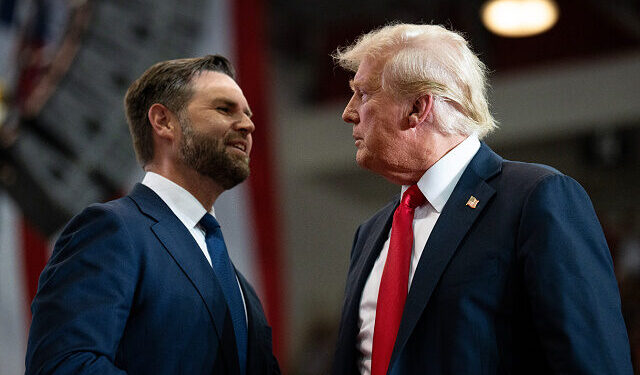In a bold move to reshape America’s economic landscape, President Donald Trump announced a series of sweeping tariffs on April 2, 2025, during a “Make America Wealthy Again” event in the White House Rose Garden. Dubbed “Liberation Day,” this initiative aims to end decades of what the administration describes as unfair trade practices that have disadvantaged American workers and industries.
Vice President JD Vance, in an exclusive interview with Breitbart News, emphasized the significance of this policy shift. “For 40 years, America has been the piggy bank of the world,” Vance stated. “We absorb all of the ridiculous trade practices and economic practices of friend and foe alike. For the first time in probably 40 years, we have an American president who’s saying, ‘No more.'”
The newly announced tariffs introduce a baseline 10% duty on nearly all imports, with higher “reciprocal” tariffs targeting countries that have imposed substantial tariffs on U.S. goods. Notable rates include 34% on Chinese imports, 20% on European Union countries, and 24% on Japanese goods. These measures are designed to level the playing field and encourage foreign nations to reconsider their trade barriers against American products.
Critics of the tariff strategy, including some proponents of globalization and “free trade,” argue that such measures could lead to increased consumer prices and strained international relations. However, Vance countered these concerns by highlighting the longstanding imbalances in global trade. He pointed out the inconsistency of critics who remain silent when other countries impose tariffs on U.S. goods but vocalize opposition when the U.S. responds in kind. “If tariffs are so terrible, then isn’t them raising their tariffs good for us?” Vance questioned. “These people always say that any tariffs are bad. Well, all these other countries have applied tariffs to the United States and non-tariff barriers to the United States for a generation.”
Beyond addressing trade imbalances, the administration views these tariffs as instruments to bolster national security. By encouraging domestic production, especially in critical industries like pharmaceuticals and defense, the U.S. aims to reduce dependence on foreign suppliers. Vance articulated this perspective, stating, “Economic security is connected to national security because, if God forbid, we had to go to war, we want our troops to go to war with the best equipment and equipment that’s made in the United States of America.”
President Trump has extended an invitation to foreign leaders seeking exemptions from these tariffs to eliminate their own trade barriers and consider manufacturing within the United States. This approach underscores the administration’s commitment to fostering fair and balanced trade relationships. “Terminate your own tariffs. Drop your barriers,” Trump asserted, encapsulating the straightforward proposition to America’s trading partners.
The “Liberation Day” tariffs represent a pivotal shift in U.S. trade policy, aiming to rectify long-standing inequities and prioritize American economic interests. While debates continue regarding the potential impacts of these measures, the administration remains steadfast in its belief that reclaiming economic sovereignty is essential for the nation’s prosperity and security.




















